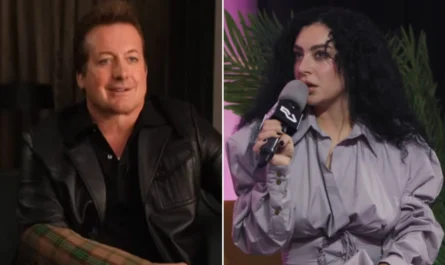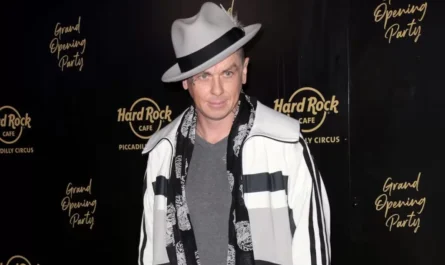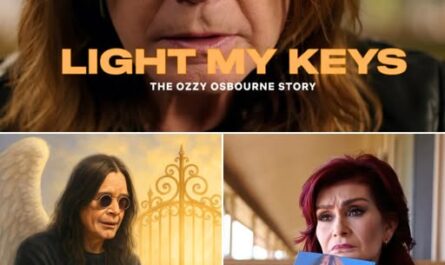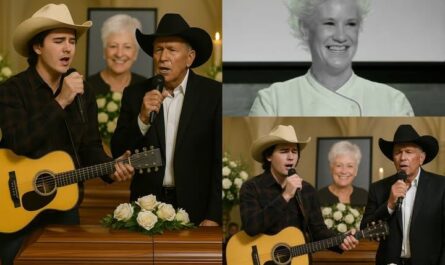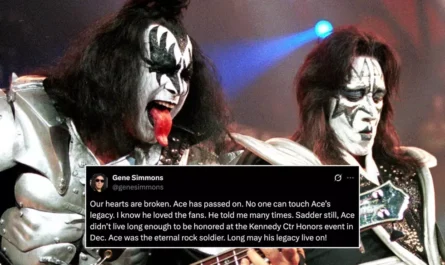In any serious conversations about who is the greatest songwriter of the modern age, Courtney Barnett needs to be somewhere towards the top of the table. You could argue that she is the best writer of her generation (sorry, Taylor Swift, you can keep your billions, but this one isn’t even close).
Barnett’s songs are overflowing with inventive wit, teeming with ingenious internal rhyme, and perfectly marry the complex blend of internal self-struggle that so many people suffer with in the modern age with a broader, more existential dread at the wider shape of the world. Whether she is taking on the mundane minutiae of an everyday drudge or tackling much larger, and far less tangible, problems of modern living, Barnett has a deft way of helping to reduce the emotional scale of any situation, while at the same time, inflating your own confidence in tackling them. “Keep on keeping on,” she sings on the wonderful ‘Sunday Roast’, “you know you’re not alone.”
In dark times, her turns of phrase can be such a delight that to sit in wonder at her wordplay can be quite enough to make you forget about whatever it was that was getting you down in the first place. The way she can pluck a rhyme out of thin air, or casually conjure phrases into existence that most people would never get close to (”now we’ve got that percolator, never made a latte greater” and “I’m breathing but I’m wheezing, feel like I’m emphysemin’” to give just two quick examples) is a genuine delight.
So much of her writing either invokes or recalls, perhaps unconsciously but does so nonetheless, Doris Lessing’s concept of “unselfing”, that is, the idea of shedding a fixed individual identity in pursuit of a more communal experience and interaction with the world; moving beyond a narrow, sheltered and entirely self-centred viewpoint of experience to explore a broader, interconnected and more considered human experience. Getting outside of yourself and plugging into a wider connective and broader culture. So many of her opening lyrics speak to this concept, before the songs they’re from go on to explore it further. “You said we should look out further”, for instance, “I guess it wouldn’t hurt us”.
Doris Lessing is not the only Nobel Laureate that you could compare Barnett’s work with, either. Bob Dylan is the most obvious name that springs to mind, but at times her works also evoke the thoughtfulness and atmospheres of other writers as far apart as Albert Camus and Harold Pinter or Toni Morrison.
Some of her songs are sprawling expanses, cavalcades and avalanches of ideas and lyrics, like ‘Pedestrian at Best’ or ‘Nobody Really Cares If You Don’t Go to the Party’, whereas others, like ‘Here’s the Thing’ or ‘Before You Gotta Go’, are much more simplistic, much more unassuming and straightforward. But that, in itself, is another clue to her genius. The way that she writes reflects the way that we all live our lives. Sometimes things build up and get on top of you, sometimes it feels like everything is happening, everywhere, and all at once, while at others you can blink and realise that a week, a month or even a year has passed you by without event or comment, and that that can be OK.

Barnett is equally adept at firing off a machine-gun spray of lyrics like “I love you, I hate you, I’m on the fence, it all depends. Whether I’m up, I’m down, I’m on the mend, transcending all reality” as if it was all one word, one piece of breath, as she is gently, softly, sweetly intoning “Here’s the thing, I can’t stop thinking about you”. In her voice, and in her use of the language, both are as powerful as each other.
And those two are just the opening lines from their respective songs (’Pedestrian at Best’ and ‘Here’s the Thing’ respectively). Both songs go on to further heights and build on those opening ideas with even more impressive ideas, just like so many of her songs do. She’s great at writing opening lines, and she’s great at writing an ending. She’s great at everything in between, too.
But what is the best opening lyric from a Courtney Barnett song?
In the wilderness that was the lockdown years, the most relatable opening lyric from Courtney Barnett was the eerily prescient “The city looks pretty when you’ve been indoors, for 23 days I’ve ignored all your phone calls”. Perhaps another opening lyric from the same album could have been particularly soothing for all the division that was sewn into our re-moulded society in those strange years, “don’t come with your arms swinging,” she sings on ‘Sunday Roast’, “throw them around me”.
It’s an almost impossible choice to narrow down all her opening lyrics to just one greatest selection, though the opening from 2019’s ‘Everybody Here Hates You’ could take the crown for the most on-brand Courtney Barnett song opening, “I feel stupid, I feel useless, I feel insane. I feel toothless, man, you’re ruthless, oh yeah.” It all just depends on what you’re looking for from a song.
Perhaps you’re more into the poetic opening salvo of ‘Help Your Self’, where Barnett sings that “darkness depends on where you’re standing. Jump the creep and watch the sunshine swim” or else on ‘Out of the Woodwork’ when she sings the literary “I was busy underwater, seeing how long I could hold my breath. A drowning flower caught my eye so I had to come up for air”.
But the inventive way that Barnett connects up the opening and closing lines of ‘Kim’s Caravan’ might tip it over the edge and ensure that it narrowly edges out all the competition in the conversation of her greatest song beginning. Opening with the image of “Watermarks on the ceiling, I can see Jesus and he’s frowning at me”, Barnett then recounts a list of the ways in which the human population has decimated and devastated the natural world around us, what it means for the planet in general and each of us in turn, before tying the tune up with a warped mirror image of the opening idea, “Satellites on the ceiling, I can see Jesus and she’s smiling at me”.
But, just like she sings elsewhere in ‘Kim’s Caravan’, “guess everybody’s got their different point of view”.
